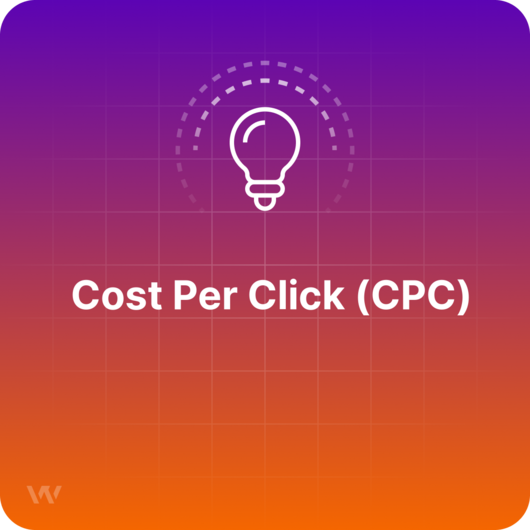Cost Per Click (CPC)

TL;DR
Cost per Click (CPC) is one of the most popular digital advertising models. CPC implies that an advertiser pays a cost to a publisher for every click on an ad. Usually, advertisers use this form of paid advertising when they want to get traffic for their websites.
About Cost per Click
Cost per Click is a pricing ad model that advertisers use to bill based on the number of clicks on a paid advertisement. CPC is also called PPC (Pay per click).
Basically, in the CPC model, advertisers are charged a fixed amount each time the ad is clicked on, regardless of the fact that the click turned into a conversion or not. Search engines like Google are famous for using CPC strategies, where the advertisers bid for keywords and then pay accordingly when users click on the ads shown in the result pages.
When is Cost per Click used?
Cost per click is recommended to be used when the purpose of the ad is to generate traffic for the website. Also, Cost per Click is used when advertisers have a set daily budget. When there is no more money for the ad in a day, the ad is removed from the rotation.
What are the advantages of Cost per Click?
Cost per Click has the advantages of meeting goals with drive traffic and has a good measure of metrics to improve paid advertising campaigns. Also, if the advertiser has a good understanding of business and audience, he can choose a manual bidding strategy, or he can focus on other things and choose an automated bidding strategy.
How is Cost per Click calculated?
The CPC formula is:
CPC = Total Budget Spend / Total Number of Clicks
For example, if you get 2 clicks, one costing $0,50 and one costing $0,40, the total budget spend is $0,90. The CPC average will be $0,45 ($0,90, your total budget, divided by 2, your total number of clicks).

